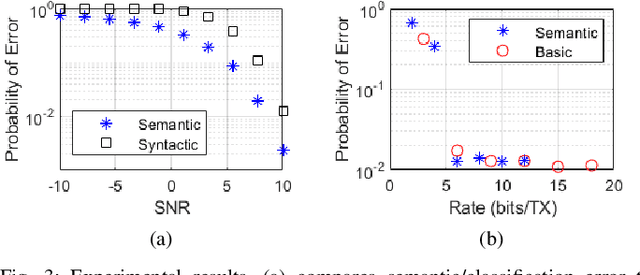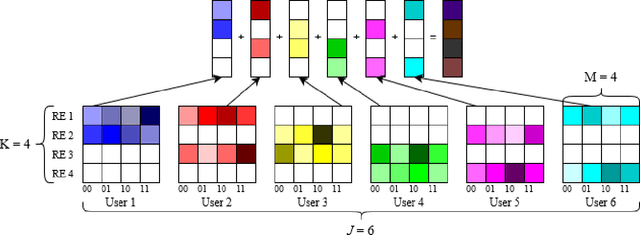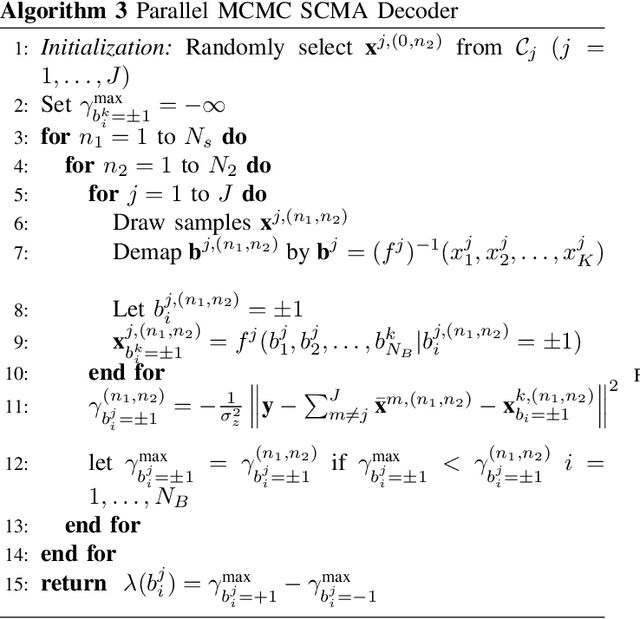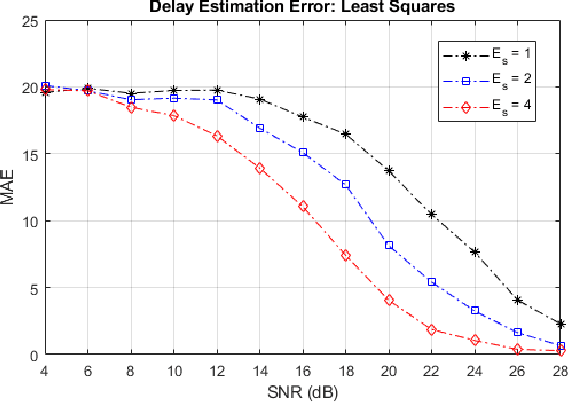Erin E. Tripp
Minimax Concave Penalty Regularized Adaptive System Identification
Nov 07, 2022Abstract:We develop a recursive least square (RLS) type algorithm with a minimax concave penalty (MCP) for adaptive identification of a sparse tap-weight vector that represents a communication channel. The proposed algorithm recursively yields its estimate of the tap-vector, from noisy streaming observations of a received signal, using expectation-maximization (EM) update. We prove the convergence of our algorithm to a local optimum and provide bounds for the steady state error. Using simulation studies of Rayleigh fading channel, Volterra system and multivariate time series model, we demonstrate that our algorithm outperforms, in the mean-squared error (MSE) sense, the standard RLS and the $\ell_1$-regularized RLS.
Semantic Communication with Conceptual Spaces
Oct 04, 2022


Abstract:Despite the fact that Shannon and Weaver's Mathematical Theory of Communication was published over 70 years ago, all communication systems continue to operate at the first of three levels defined in this theory: the technical level. In this letter, we argue that a transition to the semantic level embodies a natural, important step in the evolution of communication technologies. Furthermore, we propose a novel approach to engineering semantic communication using conceptual spaces and functional compression. We introduce a model of semantic communication utilizing this approach, and present quantitative simulation results demonstrating performance gains on the order of 3dB.
Asynchronous Multiuser Detection for SCMA with Unknown Delays: A Compressed Sensing Approach
Aug 12, 2022



Abstract:Despite being the subject of a growing body of research, non-orthogonal multiple access has failed to garner sufficient support to be included in modern standards. One of the more promising approaches to non-orthogonal multiple access is sparse code multiple access, which seeks to utilize non-orthogonal, sparse spreading codes to share bandwidth among users more efficiently than traditional orthogonal methods. Nearly all of the studies regarding sparse code multiple access assume synchronization at the receiver, which may not always be a practical assumption. In this work, we aim to bring this promising technology closer to a practical realization by dropping the assumption of synchronization. We therefore propose a compressed sensing-based delay estimation technique developed specifically for an uplink sparse code multiple access system. The proposed technique can be used with nearly all of the numerous decoding algorithms proposed in the existing literature, including the popular message passing approach. Furthermore, we derive a theoretical bound regarding the recovery performance of the proposed technique, and use simulations to demonstrate its viability in a practical uplink system.
 Add to Chrome
Add to Chrome Add to Firefox
Add to Firefox Add to Edge
Add to Edge